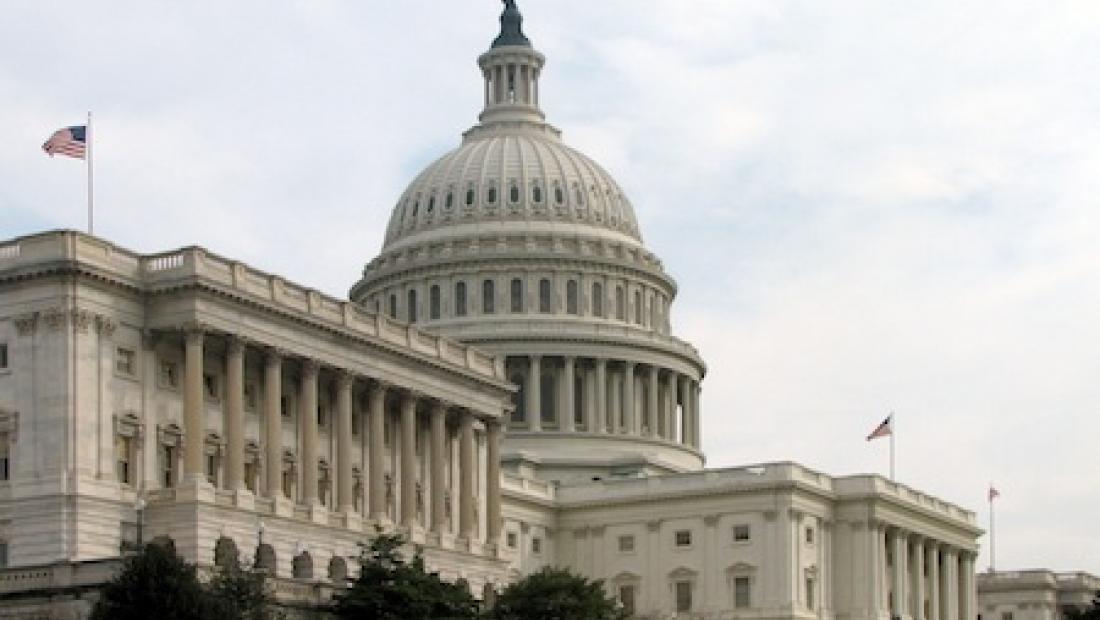Senate Passes Emergency Alert Bill

The smarter way to stay on top of broadcasting and cable industry. Sign up below
You are now subscribed
Your newsletter sign-up was successful
The Senate has passed the READI (Reliable Emergency Alert Distribution Improvement ) Act, a bipartisan bill meant to improve the emergency alert system, extend it to new platforms and avoid a repeat of the false alarm nuclear missile strike alert in Hawaii that drew an FCC investigation.
Among other things, the bill would allow broadcasters to repeat presidential and FEMA alerts, something they can't do now.
“NAB thanks the Senate for passing the READI Act, which would improve the timeliness, accuracy and availability of emergency alerts when disaster strikes," said National Association of Broadcasters EVP Dennis Wharton. "Local radio and TV broadcasters play a vital role as ‘first informers’ in keeping communities safe, and we understand the importance of relevant and up-to-date information when lives are at risk. We thank Sens. Schatz, Thune and Wicker for their leadership on the emergency alerting issue and urge passage of the READI Act in the House.”
The bill was introduced by Brian Schatz (D-Hawaii), John Thune (R-S.D.), and Roger Wicker (R-Miss.).
Specifically, the bill would:
· "Ensure more people receive emergency alerts by eliminating the option to opt out of receiving certain federal alerts, including missile alerts, on mobile phones;
· "Require active alerts issued by the President or FEMA to be repeated. Currently, alerts on TV or radio may only be played once;
The smarter way to stay on top of broadcasting and cable industry. Sign up below
· "Explore updating the system to offer emergency alerts over the internet, including to audio and video online streaming services such as Netflix and Spotify;
· "Encourage State Emergency Communications Committees to periodically review and update their State Emergency Alert System Plans, which are often out of date;
· "Compel FEMA to create best practices for state, tribal, and local governments to use for issuing alerts, avoiding false alerts, and retracting false alerts if they occur, as well as for alert origination training and plans for officials to contact each other and federal officials during emergencies; and
· "Establish a reporting system for false alerts so the FCC can track when they occur and examine their causes."
“When a missile alert went out across Hawaii in January, some people never got the message on their phones, while others missed it on their TVs and radios," said Schatz. "Even though it was a false alarm, the missile alert highlighted real ways we can improve the way people receive emergency alerts."
Schatz has another bill in the hopper, the ALERT (Authenticating Local Emergencies and Real Threats) Act, which would give the feds the primary responsibility for missile threat alerts. The Hawaii false alarm was a state effort.
“NCTA commends Senators Schatz, Thune and Wicker for leading passage of the READI Act of 2018, which focuses on developing guidance and best practices for state and local governments to improve emergency alerts, particularly to address the issuance of false alerts," said NCTA-The Internet & Television Association. "As long-standing participants in the nation’s Emergency Alert System (EAS), cable operators appreciate Congress’ efforts to improve coordination between federal and local authorities and to ensure the public receives accurate and relevant emergency and public safety information in their local communities.”
Contributing editor John Eggerton has been an editor and/or writer on media regulation, legislation and policy for over four decades, including covering the FCC, FTC, Congress, the major media trade associations, and the federal courts. In addition to Multichannel News and Broadcasting + Cable, his work has appeared in Radio World, TV Technology, TV Fax, This Week in Consumer Electronics, Variety and the Encyclopedia Britannica.

